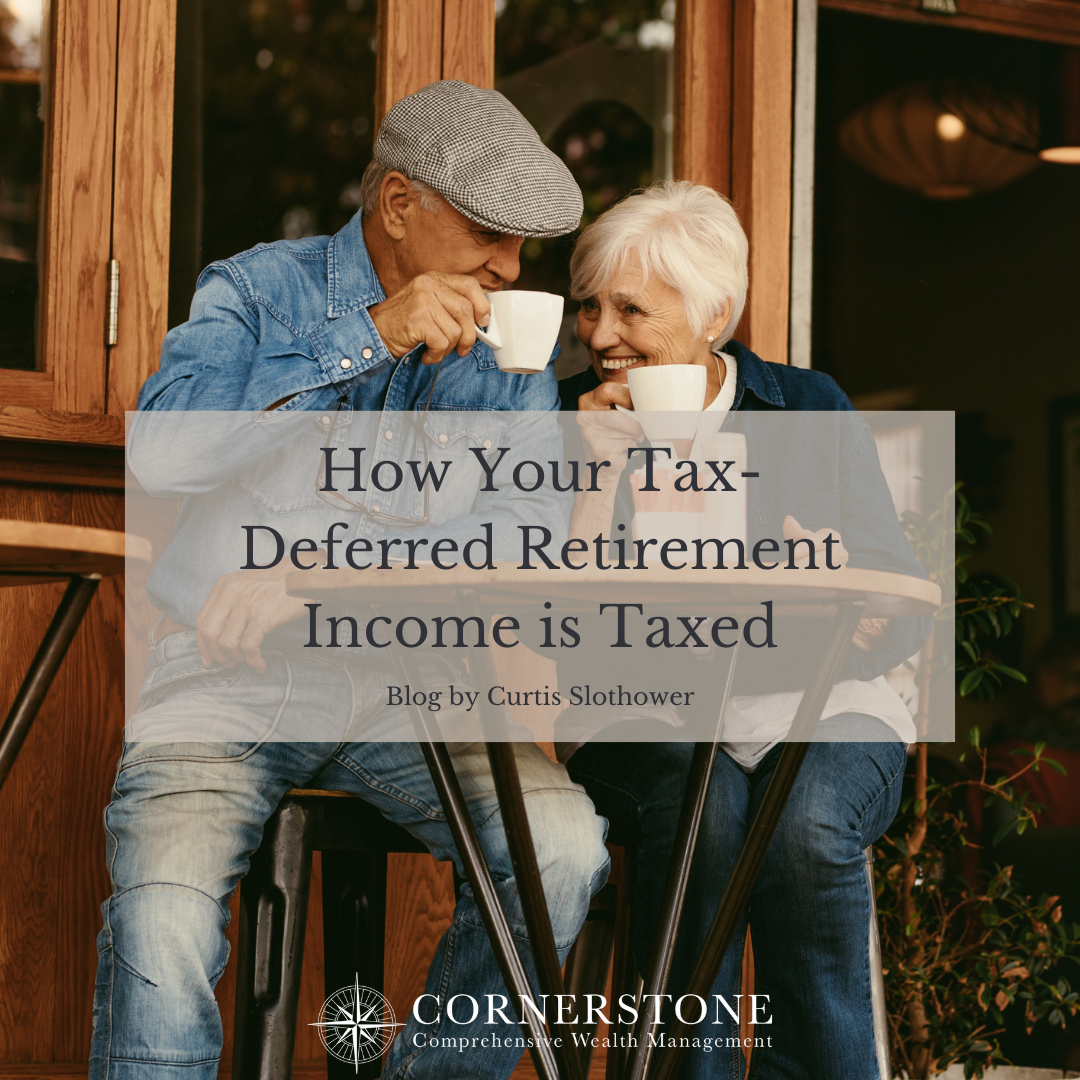How Your Tax-Deferred Retirement Income is Taxed
Curtis has earned the Life and Health Insurance licensure, has passed the Series 66 examination, and has earned a degree from the University of Nevada, Reno. He has over 20 years of experience in the financial industry, helping others protect, grow and manage their wealth. Curtis helps clients create customized strategies for their portfolios based on their unique financial goals.
HOW YOUR TAX-DEFERRED RETIREMENT INCOME IS TAXED
How you take your income in retirement is one of, if not the most, important factor in retirement. Therefore, how you are taxed on that deferred income in retirement is a very important aspect on how you should create an overall plan to address your finances in retirement.
Many of us spend our working careers contributing to a 401k plan, 457, or an IRA. How these tax-deferred accounts are taxed and the subsequent rules with the accounts matter because there are some differences between them all.
Have you considered how this taxation will affect your plan? Tax-Deferred accounts are generally taxed as income once you withdraw from the account. Let’s look at some of the main components on how your tax-deferred retirement income is taxed and some of the rules surrounding that.
1. HOW IS MY 401K TAXED WHEN I WITHDRAW FOR RETIREMENT INCOME?
The taxation is one of the most important things to understand when taking income from a 401k. Pre-Tax money in the 401k is taxed as income upon withdrawal.
The taxation you are required to withhold for any income distribution from a 401k plan is 20%. This is an automatic amount withheld from any distribution from your 401k. If you’ve planned for this accordingly, it can be good, since it fits into your tax strategy for retirement. However, it can be incredibly limiting for your personalized retirement income strategy since you’re required to withhold.
2. HOW IS AN IRA TAXED WHEN I WITHDRAW FOR RETIREMENT INCOME?
Pre-Tax money in an IRA is taxed as income upon withdrawal as well. The difference here from a 401k is that, in an IRA you dictate what you want withheld from your IRA distributions.
For some people they choose not to withhold, while others can choose anywhere from 10-30% to withhold for taxes. The flexibility usually gives you some more leverage in creating a successful tax strategy in retirement.
3. WHAT ARE SOME WAYS I CAN AVOID PAYING TAXES ON DISTRIBUTIONS FROM RETIREMENT INCOME?
You will almost always be taxed on pre-tax money when you take it as a withdrawal for income in retirement. There are some things you can do to limit this.
The main strategy is to contribute after-tax money to your 401k or create a Roth IRA. A Roth 401k or Roth IRA is money that is after tax. It grows tax free and is something you will not have to pay income tax on in the future, as you have already paid the tax.
Roth money is an extremely powerful tool when taking income in retirement as it gives you another bucket to create a successful withdrawal strategy.
HOW TO CREAT A TAX-EFFICIENT PLAN
Working with a financial professional who understands taxes can be paramount to saving money and creating an efficient tax strategy in retirement. In the end, there isn’t much you can do to change the taxation of pre-tax money in retirement. However, just because you have a chunk of change in those accounts, doesn’t mean that your options are limited.
Look at the power of Roth contributions or possibly the power of Roth Conversions. There are some other options out there, but when it comes down to it, your tax-deferred accounts will be taxed as income when you take your withdrawals. So, it is essential to have a tax strategy as you plan for retirement and embark on your retirement years.
If you’re interested in curating a financial plan that is tax efficient, contact Cornerstone Comprehensive Wealth Management to see if we’re a good fit. You envision the life you want to live, and we’ll help you create a plan to live out your ideal retirement.
Based in Reno, NV, Cornerstone is for individuals and families looking to grow wealth, protect and preserve their life savings, and plan for the distribution of their estate in a tax-efficient manner through a tailored strategy. Schedule a time to discuss your financial goals with us.



